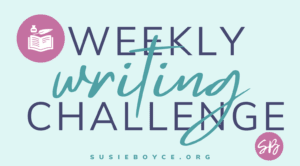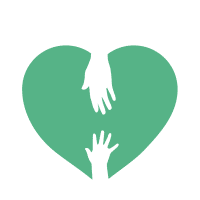2020

Susie Boyce, Utah
Our family’s first and only cruise, in June of 2013, was a lifetime in coming. My parents had spent years of their Saturday mornings perusing neighborhood garage sales for birthday and Christmas gifts, but had nonetheless managed to save and pay for a cruise — a lasting family memory before Dad’s stage 4 lung cancer robbed us of the chance.
So the head injury I sustained in an accident in January came at a rather unfortunate time in my family’s history of significant life events. But my doctors were confident, assuring me that my recovery would be complete well before June. I was incredibly grateful for that information; missing the cruise would have been devastating.
My heart loved every minute of that cruise, basking in the sun and spending precious time with the people I love most. My brain, on the other hand, pretty much hated every minute of it. I spent most of the time feeling dizzy, nauseous and generally discombobulated. I was able to eat meals with the family, occasionally sat out on the pool deck, and tried to be there for the more important activities. Otherwise, I was in bed. Excursions on land — the only times my brain didn’t feel considerably “off” — were a wondrous respite.
my doctors were confident, assuring me that my recovery
would be complete well before June.
w as I grateful to go on the cruise with my family? Absolutely. Was I fully recovered by the time we boarded? Absolutely not. My confidence in my doctors’ confidence was steadily declining. Fast forward three months later to my dad’s funeral. As is generally the case, it had been preceded by a week of planning and stress and grieving and hosting visiting family members. Because my dad had touched many lives for good, hundreds came to pay their respects. The burial immediately followed, and finally a luncheon for close friends and family at the church building. I was starving and anxious to catch up with loved ones, but my brain wasn’t having it. So I found an empty classroom, lined up several padded folding chairs side by side, lay down, and fell into a dreamless sleep for an hour and a half. Just as the luncheon was winding down and pictures had begun, I woke up. Was I grateful to be able to attend and give the eulogy at my dad’s funeral? Absolutely. Was I fully recovered by then? Absolutely not. And so it went.
My confidence in my doctors’ confidence
was steadily declining.
My husband researched tirelessly until he eventually found a diagnosis — post-concussion syndrome (PCS) — that seemed to fit my ongoing symptoms. Doctors later confirmed he was right. Understanding the diagnosis led to considerably less stress; my expectations of recovery were no longer unrealistic.
In the seven years since my accident, I’ve assumed that the baffling lack of information I received from medical professionals was an exception to the rule for those who suffer head injuries. But if the scores of comments and emails I’ve received in response to my recent articles about my traumatic brain injury (TBI) are any indication, I was wrong. Most of those who suffer head injuries are sent home with far too little information, setting them and their caregivers up for needless worry (on top of their difficult and frightening new realities).
So, in an effort to ease some of the anxiety that accompanies prolonged TBI recovery, I’m sharing what I’ve learned about PCS.
In the seven years since my accident, I’ve assumed that the baffling lack of information I received from medical professionals was an exception to the rule for those who suffer head injuries. But if the scores of comments and emails I’ve received in response to my recent articles about my traumatic brain injury (TBI) are any indication, I was wrong.
Post-Concussion Syndrome (PCS) fit my ongoing symptoms
— Doctors later confirmed my husband was right
The Mayo Clinic explains PCS as a complex disorder in which various symptoms persist for weeks, months or even years after the injury that caused the concussion. According to Medical News Today, symptoms of PCS can include but are not limited to:
- Headaches
- Dizziness
- Fatigue
- Increased sensitivity to light and noise
- Irritability
- Changes in emotional state, such as becoming more susceptible to stress, depression, and anxiety
- Difficulty concentrating
- Memory problems
- Difficulty sleeping
- Increased intolerance to alcohol
- Changes in appetite
“Post-concussion syndrome can be extremely disruptive to a patient’s life,” Cantu explained on the Concussion Legacy Foundation website. “In addition to having to constantly manage concussion symptoms, which can intensify with normal activity, long-term PCS patients often have to restructure their lives to avoid activities and situations that cause symptoms to worsen.”
Added to this disruption can be a feeling of isolation because observers often dismiss or minimize a patient’s symptoms. “PCS is an invisible injury, and many patients often wish they had a more visible injury requiring crutches or a cast so that they would receive more respect,” Cantu said.How to live with post-concussion syndrome
As was the case with me, symptoms gradually improve — but that includes good days, bad days, plateaus and backward steps.
Finding a strategy to manage PCS symptoms is key. Some techniques the Concussion Legacy Foundation says have proved useful to PCS sufferers include:
- Planning ahead for naps
Shifting focus (from a sport to another activity, for example) - Coming up with a specific “escape plan” to exit a situation when symptoms get worse
- Journaling to track symptoms and identify triggers
- Finding a trusted person to talk to
In addition to managing PCS symptoms, many treatments that help alleviate symptoms are available. Because each head injury is unique to the individual, I’ve found treatment plans never look identical. Concussion specialists suggest specific therapies based on the patient; often, various treatments are tried before finding what works for the patient.
According to Medical News Today, some effective treatments for PCS include:
- Physical therapy
- Exertional therapy
- Cognitive behavioral therapy
- Neuro-optometric rehabilitation
- Nutritional changes
- Neck rehab/balance therapy
- Float therapy
In summary, PCS is real, complex and difficult to articulate to others when you’re in the thick of it. To top it off, some doctors aren’t aware that concussion symptoms can persist for so long.
Challenge
So, my challenge to PCS sufferers and caregivers is to learn as much as possible about the condition. Knowledge will give you the ability to be a strong and effective advocate during the journey of recovery.
Published in KSL.com – HERE’s the link
What’s Next
Next article:
Traumatic brain injuries—Understanding post-traumatic stress disorder and its link to traumatic brain injury
Author’s Note:
Everything I discuss about traumatic brain injury (TBI) in this series of articles is mine and mine alone. Injury and recovery journeys are unique, making it impossible for anyone to walk the exact same path. But in the event that our paths are similar, perhaps even crossing each other’s on occasion, my goal in writing these articles is to lend perspective and hope to fellow travelers.
Susie Boyce










